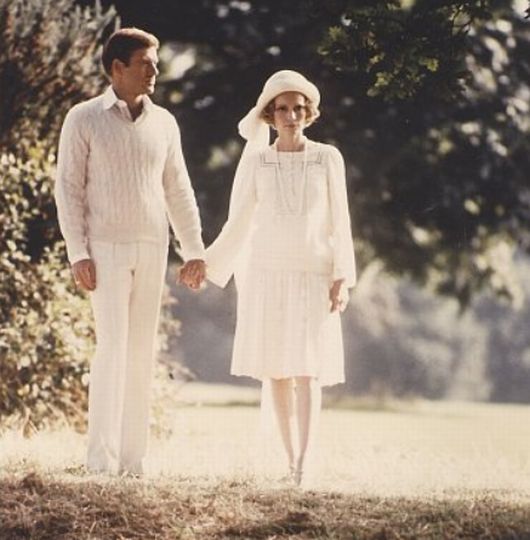 POETRY
POETRY In Which We See What The Young Poets Are Writing Today
 Sunday, August 8, 2010 at 11:25AM
Sunday, August 8, 2010 at 11:25AM You can find the first part of this series here.
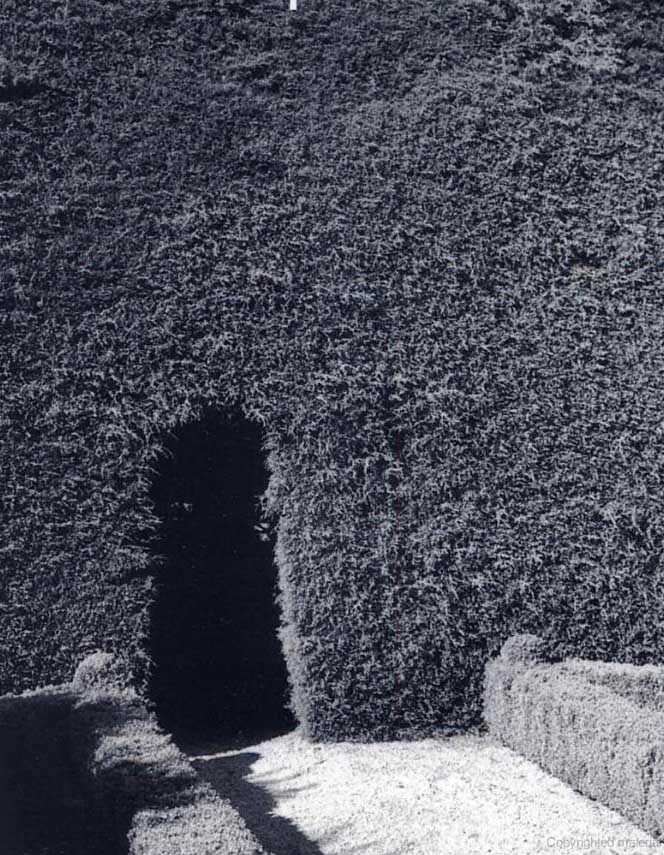
Solid In Your Area
The correspondence of the poets Denise Levertov and William Carlos Williams remains for me shrouded in mystery. Other figures swirl and move through this artistic relationship, and despite a massive age difference (40 years), some element of romance remains. Not a sexual romance, but something deeper, like a touching of souls across time. As his body failed him Williams' mind raced to keep up with its active heights, when the physician-poet made new forms using his iron-clad grasp of the language. The female poet that considers his advice sage above all others was struggling to realize her life would not follow so easily from mastery of her art. The mystery then, is of what is occuring at the edges of the letters, where two people seem to suffer together without explaining or having to explain the cause to themselves. - A.C.
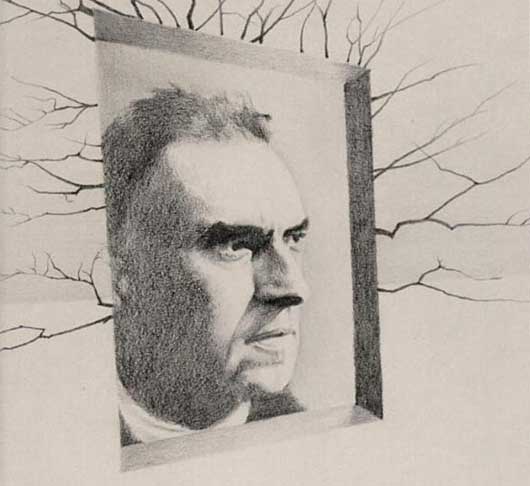
June 13th, 1956
Dear Denise,
"Compost" is a fine poem, thank you for calling it to my attention. From now on it occupies a niche in my consciousness. But that only reinforces the main drawback for me in all of Whitman's poems, even the greatest of them and I include "Compost", now that you have called it to my attention, among one of his most important shorter poems.
The mark of his times was on Whitman, he had rejected the older prosody but had nothing to take its place but a formlessness which has laid him open to attack on formal grounds. When you see what the young poets are writing today, Whitman might never have existed instead of founding a memorable school that should have gone influencing the writing of poems to this day.
Maybe it is best so, a great poet is strongly an individual and not to be copied but if he does not link up with the prosodic process in some way he seems to me to have lost his major opportunity.
The intellectual enlightenment that this poem signalizes is tremendous. That should be enough, you might say, to commend it to our admiration. The art of the poem must keep pace with the intellectual life of the times in which we live. A play which I saw last week which was on the verge of closing its doors because there were not enough people interested in seeing it was Waiting for Godot. Without qualification I find it the greatest play of a generation. It was an uproarious comedy with tragedy breaking through mostly in the acting, which was superb, but also in the idea itself. The comedy was laid on with a trowel. God it was beautifully done!
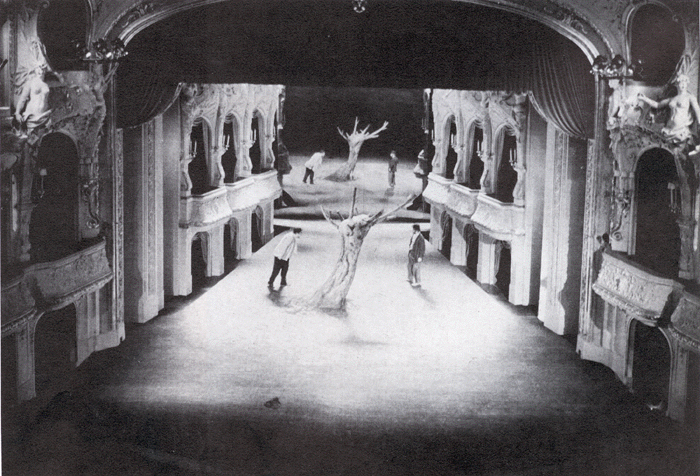
I could go on raving about that play for the rest of my life but I want to call your attention to a phenomenon of the moment in NY. That play all but failed but another play, referred to in an accompanying letter (which you can destroy), is all the vogue. You can imagine, from the title, why that is. This sort of snobbism will go on forever as long as women are desirable under their clothes. It has no relation to poetry or perhaps (we do not know) to the subtle poems of Sappho, that delightful bitch. Which brings me back to Whitman: The art of the poem requires order but in our day a new species of order, a new measure, consonant with our time. My complaint against Whitman is that he failed to realize this. He discovered nothing.

The poems you enclosed, you are right, are much better than the last time. One or two of them are up to your best work. But not the last, longest one, "Le Bateleur", which I can't see. Glad you are getting to know John Herrmann, I always liked him. Give him my love and tell him he has always occupied a special place and a distinguished place in my memory. I'd love to see him again. I hope he recovers his health completely for from all I hear he has been seriously ill.
Write again, the life you are living in Mexico sounds fascinating especially Oaxaca where you are heading. Take care of yourself. Saw some paintings of a young New Jersey painter who lives about 40 miles from us in country district about Lake Hopatcong that are quite marvellous today; thrilling work, actual records of life but not abstracted for a patterned to appeal to a geometric unity. Watch him, his name is Henry Niese. Love.
Bill
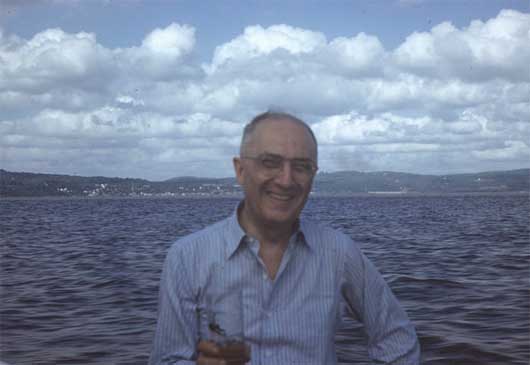
Dear Denise:
Your new lot of poems at their best show the ability with the words that I have come to look for from you, the same mastery of the rhythmic structure. At the same time it reinforces my knowledge that poetry is a most difficult art. It requires constant attention to detail and a conscience that lays in wait to trip us up at the smallest lapse from perfection. "The Lovers" is a beautiful piece of work. "Tomatlan", that attempts more, is also a good work which I very much like but it is not as sharply cut as I'd like to see.
One word too much in such short poems as this damages the whole effect. Without showing it all such short poems have to be cut to the quick. One redundant word overburdens the line intolerably.
The test of the artist is to be able to revise without showing a seam. In "The Lovers" you yourself state that the poem as I saw it had been revised. That proves that you have the right knowledge of what you're doing. It often is no more than a question of knowing what to cut. And in the process of cutting, part of the same gesture, the new word, the insight in your own meaning will suddenly flash across your mind.
Practice, practice, practice! must be the practice of the artist. You have to write (as you must know) practically in your sleep and leap out of bed day or night when the inevitable word comes to your mind: it may never come again. You know all this but it can bear repeating, I am talking as much to myself as I am to you.
All the best passages we have ever written come to us in the flash of an — sometimes we lose them (it must be admitted) by revision, but that is a chance that has to be taken.
I return your script to show you what I would do to it — and never forget that as between writers there are no secrets. All I have is yours as far as I can make it so. I don't expect that you will agree with me. Good luck.
Best,
Bill
"The Springtime" is also a well made poem.
W.
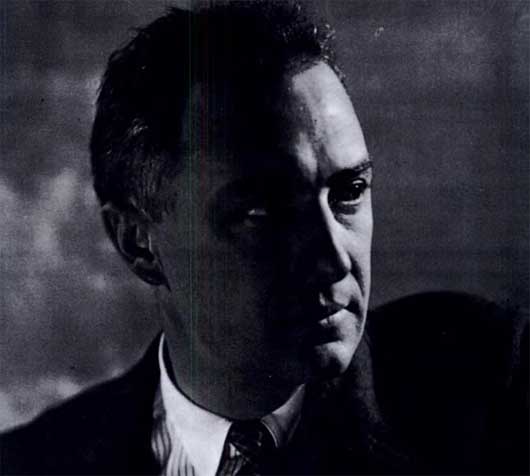
June 25th, 1956
Dear Bill,
Thank you very much for those 2 letters & for making that poem. I absolutely agree about the cuts — it's like someone trying to make a 'realistic' drawing & just not seeing they've got the nose too long, or whatever. Until someone points it out at last. Did you mean, I wonder, to send the 4th part of the poem or not? You didn't, anyway. Maybe you though it was OK?
I wish I could have seen Waiting for Godot. I'm going to read it, anyway, but that's something different. Also there's a book of 3 stories, by the same man, I've seen it here at a store which sells French books, which we're going to buy on the strength of what you say about Godot.
The last memorable theater I saw was The Dybukk in a little cellar-like theatre on E. 3rd St. somewhere; where the stage is in the middle, audience on 2 sides, & the actors were obliged to climb onstage, like boxers, from the ailes. It was another world, and given with complete intense conviction. And before that in 1948 in April, Jean-Louis Barrault's production of Kafka, not The Castle, the other one, dramatised by Gide I think, altho' I could understand only about 1/2 at most - because of the sense of there being no slack to take up, and of things happening simultaneously at different levels, as in a string quartet. (And indeed the set was built so that that was physically true.)
Other plays I've seen, including Shakespeare (because it's played with such embarrassment and consciousness of "playing Shakespeare") even when I've enjoyed them, have usually seemed no more than versions of conventional novels "acted out" — nothing specifically theatre about them. Some sense of what it could be I've gotten from Artaud (tho' sometimes he seems quite incoherent — or perhaps it's just that I can't keep up with him) and from that scene where the sailors dance on the moonlit deck in Moby Dick — and from "A Dream of Love" - but how I wish I could see it!
I showed John Herrmann your message and he was very pleased & said he must write to you. But it seems he finds it just about impossible to write letters. The little boy, Juanito, was 4 the day after Nik was 7, & we went to the party. And Juanito has been over here to play several times. They like each other in spite of the age difference.
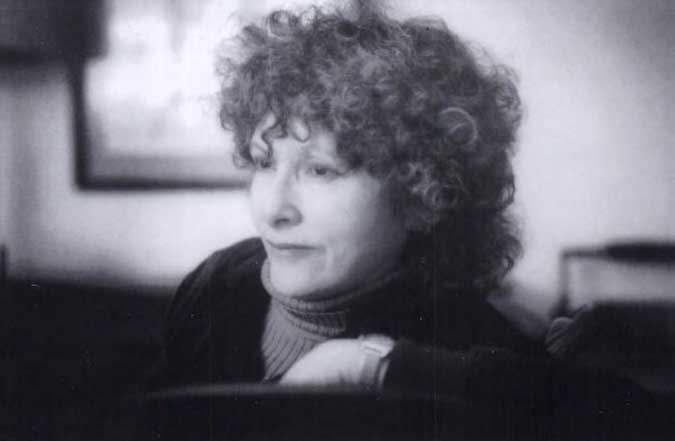
Mitch's novel was just turned down by Random House after a nine week wait. Mitch has gone downtown to relieve his feelings. (We received the agent's letter this morning.) There isn't much one could do to relieve one's feelings in Guadalajara except to drink tequila and he's not much of a drunk, or go to the movies. So I guess he went to the movies.
Lee (Leland) Bell (that painter about whom I wrote to you & whose show you then went to see, a year or so ago,) and his wife also a good painter, received McDowell Fellowships and are there now. I'm very pleased because they really needed something like that.
I've been reading a book on Ecology which interested me very much - the place of the predators especially. And some Fabre, insects.
We are looking forward to Kora in Hell which Ferlinghetti tells me will be out in October.
Love to you & Floss
Denise

August 22nd, 1956
Dear Bill,
It certainly was good to hear from you. I hope you won't feel disappointed in Mitch's article when Floss reads it to you — the thing, it is strictly commercial, has to be, written to a market, and he would hate anybody, and you in particular, to think of it as an attempt at a piece of genuine writing. I wish he wd. show you some of his real stuff — the only legible copy though is with Ivan von Auw, the agent. It keeps coming back from publishers with notes saying, "great talent" etc. etc. "but not for us" — "however we'd be happy to see his subsequent work" etc.
At the moment he is away on a trip to Guatemala, Yucatan, and the W. Indies, also for Atlantic Monthly. The Guatemalan Tourist Commission gave him a car & driver & paid all bills for a week or 10 days & he went to remote mountain villages & saw Indians proud and beautifully dressed, as they are not here. He'll be home in a week or so — I'm looking forward to hearing about all the other places he's seen, of which Havana seems to have been the worst and Haiti the best, after Guatemala & Yucatan.
At that point the milk boiled over.
Enclosed are a few new poems. Ferlinghetti seems about ready to send off the poems he's chosen, from what I sent him, to the printers. Jonathan Williams is also doing a book for me, and Al Kresch will do a litho for it. Jonathan put me on his list & sent that out before I even knew what he was up to, & he's going out of business (he says) after he's through with his present titles — so now it's now or never — but I wish he could have waited till next year. I'm afraid of not having enough good poems for him; and I don't want to pad it.
I think the Ferlinghetti book will be good, tho', and I look forward to sending you the first copy he sends me.
Tomorrow I'll go downtown to look for The New Yorker. Good!
Did you ever read Stanislavsky's An Actor Prepares and My Life In Art? The former, a very exciting book in spite of its rather wooden prose, seems to me to have so much in it that's applicable to other arts besides acting; & the latter, which I'm just reading, is full of amusing very Russian anecdotes as well as showing an interpretive artist's development step by step. I also just read The Idiot for the first time.
Denise
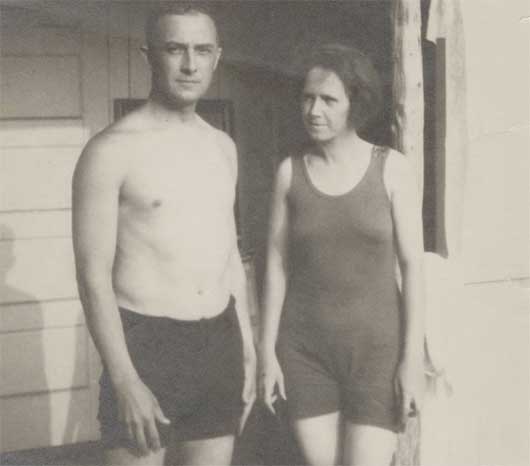
Dear Bill
First — it's too late to wish you a happy birthday but I do wish you a happy year, with good health & lots of work. I didn't forget the 17th but couldn't make up my mind whether what I'd got to send was suitable or not — i.e. whether you'd be able to read it. In the end I decided to send it anyway (with love) in the hope that if you weren't able to read it to yourself you would be able to find someone Spanish-speaking to read it to you. I was afraid you'd have to pay duty on anything other than a book.
A few days ago I had a letter from a N.Y. painter, Nell Blaine, telling me about a sort of anthology she & some other people are getting up, of poems, & reproductions of contemporary paintings, and asking me to ask you if you would contribute. The painters included are mostly good — Lee Bell, whose show you went to see after I wrote about it, for one — Helion, Kerkam (a rather neglected older man), Albert Kresch, etc. But the poets, or at least those who are editing it, aren't much good I think; a little clique — John Ashbery, Kenneth Koch, Frank O'Hara — rather slick. So I don't want to be the one to ask you. However I took the liberty of sending your address — I hope that's alright. She'd undoubtedly have gotten it from someone else anyway. Grove Press is going to publish it. I think the section of paintings will be very good.
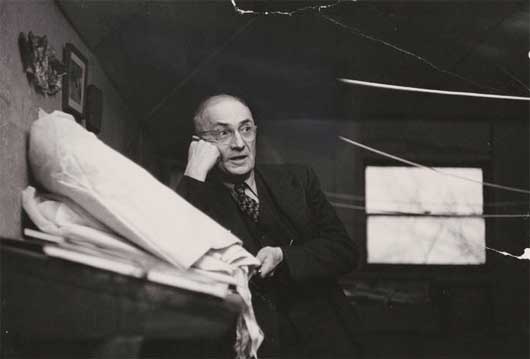
We saw some short Lorca plays here a couple of weeks ago, very very well done by a young group, El Caballito. Also some early renaissance things something after the style of Everyman or The Shepherd's Play; & 3 modern French plays (in Spanish) — by Tardieu, Neveux & Ionesco. All were short, & done with wonderful crispness and freshness. They call their programs "Poesia en Voz Alta." Absolutely no ranting — (except in an arrangement by Octavio Paz of "Rappacini's Daughter," of Hawthorne, with dreadful scenary by Leonora Carrington — the one poor item). They are the poeple who, if it weren't for the language barrier, damn it, could do A Dream of Love.
All this makes it sound as if our Spanish were much better than it is.
We finally got hold of Waiting for Godot, & liked it very much. But it needs to be seen — it's so hard to pace one's reading properly — rushing through what on the stage would be long pauses full of meaning.
Mitch's agent is our Godot. Right now it's 14 weeks since the book came back from one publisher & was sent to another — & not a word.
Olson's second book of The Maximus Poems arrived yesterday. At a glance it looks to me much better than the first lot, which seemed to me to need cutting. I have very varying feelings about Olson. Sometimes he seems terrific & at others incredibly bad and self-deluded. Have you read this book?
With love to Floss & to you
Denise
You can find the first entry in this series here.
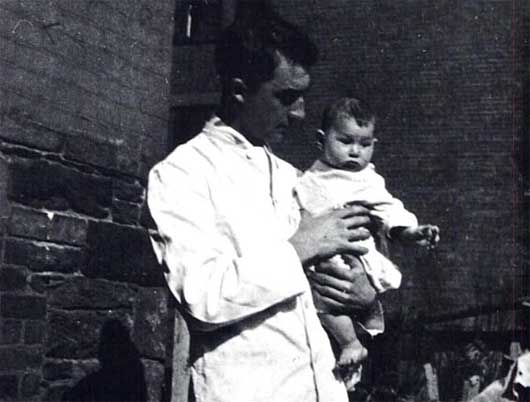
"Big Timer" - Kevin Rudolf (mp3)
"I Belong to You (Lany)" - Kevin Rudolf (mp3)
"Must Be Dreamin'" - Kevin Rudolf ft. Rivers Cuomo (mp3)
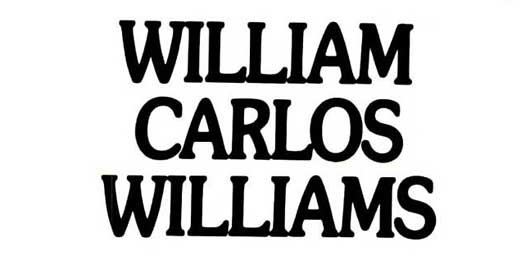
If You Feel Something, Might As Well Write It Down And Mail It To Someone

The astonishing letter writing of Vladimir Nabokov...

The deep waters of Ernest Hemingway...
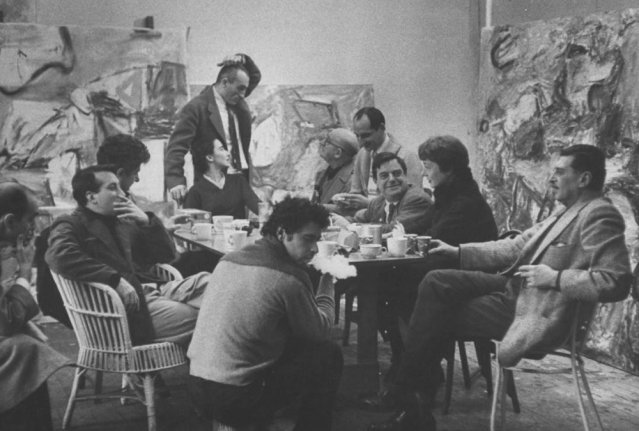
Elaine de Kooning's memories of Mark Rothko...

Gustave Flaubert and George Sand's squabbles...

Gertrude Stein knows more about these things than most...

Let's face it, Anne Sexton was one hell of a woman...

James Agee's magical Plans for Work...
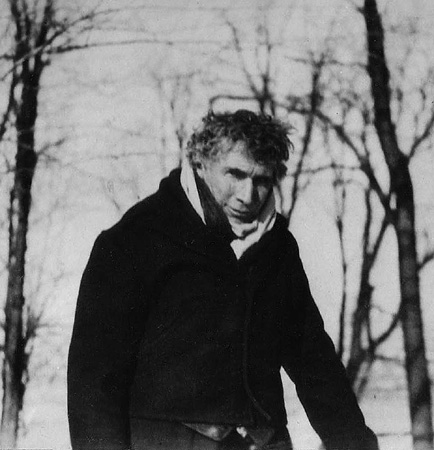
The last letter of John Cowper Powys to Henry Miller...

The autobiography of Robert Creeley...

The cagey love affair of William Faulkner...

Lillian Hellman and Dashiell Hammett lie for fun and profit...

Elizabeth Gumport and Dawn Powell...

John Ashbery explains Fairfield Porter through his letters...

Jessica Ferri on Sylvia Plath...

Georgia O'Keeffe's journal and letter writing has no equal...

The stormy relationship of Rimbaud and Verlaine...

The brilliance of William Gass' letters...
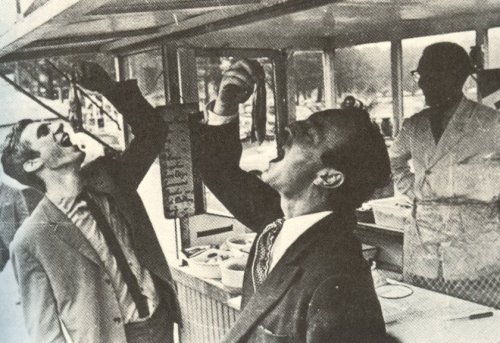
James Schuyler's writing to his friends...
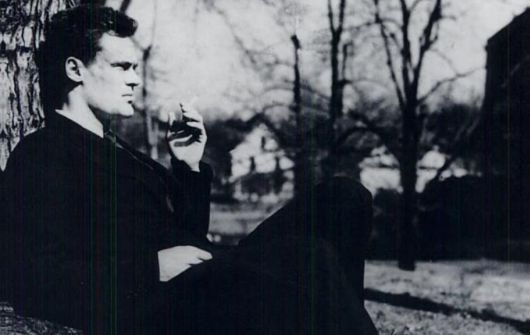
Robert Lowell and William Carlos Williams...
